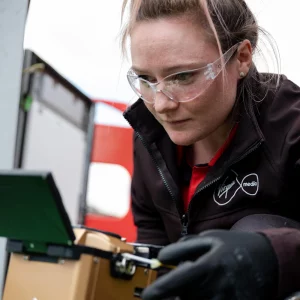Sponsored Links
UK Liberal Democrat Party Commit to Repeal Digital Economy Act 2010
Posted: 17th May, 2010 By: MarkJ

 The UK Liberal Democrat party, which is now officially part of a government coalition with the Conservatives, has held a special Sunday conference with its members in which a commitment to repeal part of the controversial Digital Economy Act 2010 (DEA) was crucially reaffirmed. The move could spell good news for broadband ISPs, assuming it has any impact.
The UK Liberal Democrat party, which is now officially part of a government coalition with the Conservatives, has held a special Sunday conference with its members in which a commitment to repeal part of the controversial Digital Economy Act 2010 (DEA) was crucially reaffirmed. The move could spell good news for broadband ISPs, assuming it has any impact.The Act seeks to tackle unlawful copyright file sharing (P2P) by, among other things, imposing technical measures upon internet providers (ISPs) and issuing warning notices to customers when such activity is detected. However the LibDem's have long been opposed to two crucial elements of the act, internet blocking (i.e. website blocks) and cutting customers off from their ISP as a punishment.
The conference itself also endorsed "the agreement for a coalition government between the Liberal Democrats and the Conservative Party", though we note that tackling the DEA did not form any part of this agreement. However being in such a coalition will give the LibDem's more of a voice, which makes their position important.
Liberal Democrat Statement
"Conference recognises that party members in government and in parliament will be bound by the usual conventions and by the terms of this agreement but declares that the Liberal Democrats remain an independent political party and that nothing in this agreement prevents the party from developing new policy through it’s democratic processes.
...
Conference urges Liberal Democrat ministers and MPs to take all possible steps to ensure the repeal of those sections of the Digital Economy Act 2010 which are inconsistent with policy motion Freedom, Creativity and the Internet as passed at Spring Conference 2010."
"Conference recognises that party members in government and in parliament will be bound by the usual conventions and by the terms of this agreement but declares that the Liberal Democrats remain an independent political party and that nothing in this agreement prevents the party from developing new policy through it’s democratic processes.
...
Conference urges Liberal Democrat ministers and MPs to take all possible steps to ensure the repeal of those sections of the Digital Economy Act 2010 which are inconsistent with policy motion Freedom, Creativity and the Internet as passed at Spring Conference 2010."
That essentially refers to the controversial clauses 11-18 of the Digital Economy Act on cutting access and web blocking. This is no doubt good news for those concerned that the act went much too far, although caution is advised. Both Labour and the Conservatives, which hold the lion's share of seats, have already agreed to the DEA in its current form.
As it stands now the LibDems will face an uphill struggle to get related parts of the act repealed, although we wouldn't be surprised to see "internet blocking" being given the boot because that section is already set aside for a post-election debate. The disconnection policy repeal is likely to be a far harder fight to win.
Many ISPs, people and consumer groups fear that the DEA's wording is dangerously ambiguous and could lead to the blocking of websites like YouTube, the closure of many public Wi-Fi services and customers being unfairly disconnected from their broadband ISPs based on "suspected" copyright infringement.
Search ISP News
Search ISP Listings
Search ISP Reviews
Latest UK ISP News








Cheap BIG ISPs for 100Mbps+
150,000+ Customers | View More ISPs
Cheapest ISPs for 100Mbps+
Modest Availability | View More ISPs
Latest UK ISP News
Helpful ISP Guides and Tips
Sponsored Links
The Top 15 Category Tags
- FTTP (6802)
- BT (3882)
- Politics (3075)
- Business (2767)
- Openreach (2663)
- Building Digital UK (2512)
- Mobile Broadband (2476)
- FTTC (2142)
- Statistics (2129)
- 4G (2093)
- Virgin Media (2026)
- Ofcom Regulation (1779)
- 5G (1733)
- Fibre Optic (1604)
- Wireless Internet (1595)
Sponsored
Copyright © 1999 to Present - ISPreview.co.uk - All Rights Reserved - Terms , Privacy and Cookie Policy , Links , Website Rules





























